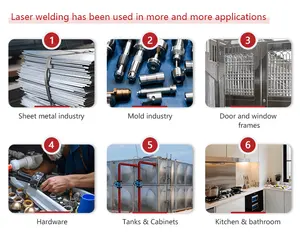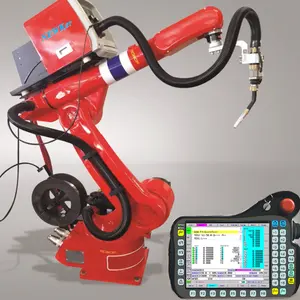Top categories

PCB & PCBA

Circuit Protection

Connectors, Terminals & Accessories

Telecommunications

Development Boards, Electronic Modules and Kits

Electronic Accessories & Supplies

Passive Components

Isolators

Audio Components and Products

Sensors

Displays, Signage and Optoelectronics

RF, Microwave and RFID

Discrete Semiconductors

Wireless & IoT Module and Products

Power Supplies

Relays
About products and suppliers
Fiber Welding Machine Overview
The fiber welding machine category encompasses a range of equipment designed for the joining of materials through laser welding technology. These machines are integral to various industries, employing a high-energy laser beam to melt and fuse materials together. The versatility of fiber laser welders allows for their application in building material shops, manufacturing plants, and construction projects.
Types and Applications
There are several types of fiber welding machines, including handheld fiber laser welding machines and stationary units. Handheld models, such as the handheld metal laser welding machine, offer portability and flexibility for on-site repairs or small-scale operations. In contrast, larger, stationary machines are suited for high-volume or industrial tasks. These machines are adept at handling tasks ranging from delicate fiber optic equipment to robust metal components, making them a staple in precision manufacturing and engineering.
Technical Features
A typical fiber laser welding machine is equipped with a laser source, motor, and a programmable logic controller (PLC). Advanced models may include features like automated systems, which are capable of intricate work with minimal human intervention. The fiber welder machine is celebrated for its ease of operation, multifunctionality, and adaptability to various materials and thicknesses. The precision of these machines, such as those from the senfeng laser welder line, is particularly noted for their consistency and efficiency in production environments.
Material Compatibility and Advantages
The fiber optic laser welder is designed to work with a multitude of materials, including metals and thermoplastics. The adaptability of these machines to different material types is one of their key advantages, allowing for a broad range of applications. The precision and speed of a fiber laser welding machine price are competitive, considering the quality of the output, which is characterized by strong, clean welds with minimal post-processing required.
Choosing the Right Machine
Selecting the appropriate fibre welder depends on several factors, including the specific application, material type, and desired throughput. For instance, a 2000w laser welding machine may be ideal for heavy-duty tasks, while a 1kw laser welding machine price might be more suitable for operations with tighter budget constraints. It is crucial to assess the power, speed, and control features of a machine to ensure it meets the specific needs of the task at hand.
Conclusion
In conclusion, the fibre laser welding machine represents a significant advancement in welding technology, offering unparalleled precision, efficiency, and versatility. While the market offers a diverse range of machines tailored to various applications, it is essential to consider the specific requirements of your project to select the most suitable fiber welding solution.

























 浙公网安备 33010002000092号
浙公网安备 33010002000092号 浙B2-20120091-4
浙B2-20120091-4